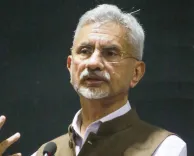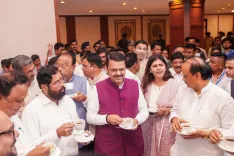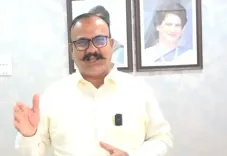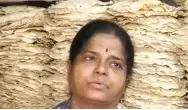Has the Maha Government Formed a Committee for a Trilingual Policy?
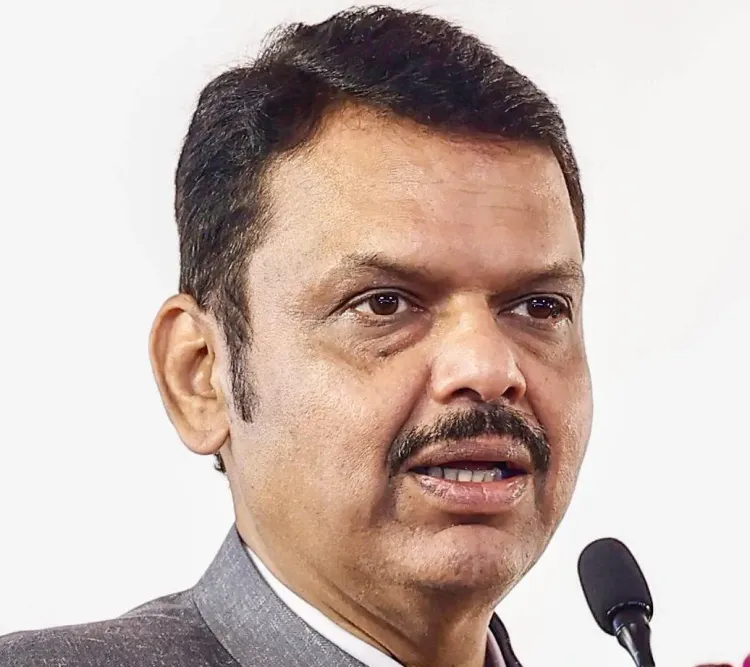
Synopsis
Key Takeaways
- Maharashtra government forms a committee to assess the trilingual policy.
- Marathi language will be compulsory; Hindi remains optional.
- Former Planning Commission member Narendra Jadhav leads the committee.
- Previous resolutions mandating Hindi were revoked amid protests.
- Political dynamics are shifting ahead of local elections.
Mumbai, June 29 (NationPress) In the face of significant backlash against the enforcement of Hindi in Marathi and English schools for grades 1 to 5, and with a joint protest planned by estranged brothers Uddhav Thackeray and Raj Thackeray on July 5, Chief Minister Devendra Fadnavis announced on Sunday the establishment of a committee led by former Planning Commission member Narendra Jadhav. This committee's objective is to draft a report regarding the trilingual policy formula that prioritizes the interests of Marathi students.
During the press conference, Fadnavis revealed that the state Cabinet has opted to revoke two earlier government resolutions issued on April 16 and June 17, clarifying that the Marathi language will be mandatory while Hindi remains optional for students.
The committee has requested three months to prepare its report. The April 16 resolution had previously mandated Hindi as a compulsory third language in Marathi and English schools for grades 1 to 5, but this was paused following widespread protests.
A revised resolution was introduced on June 17, establishing Marathi as a compulsory language across all schools, while allowing Hindi as an optional subject. Students can also select from other Indian languages if at least 20 students per grade express interest in studying a language other than Hindi.
The Cabinet's decision to annul the two resolutions indicates that the government will not proceed with the trilingual policy until the report from the Narendra Jadhav committee is submitted. Consequently, Hindi will not be a third language for grades 1 to 5 in Marathi and English schools at this time.
The Chief Minister also criticized the Uddhav Thackeray-led government for its language policy, noting that the previous Maha Vikas Aghadi administration had accepted recommendations from a high-level committee headed by renowned scientist Raghunath Mashelkar, which suggested making both English and Hindi compulsory to better support Marathi students in the Academic Bank of Credit.
“The MahaYuti government has instead mandated Marathi while keeping Hindi optional. Protecting the interests of Marathi students remains a priority for our government. We will demand accountability from Uddhav Thackeray regarding the closure of Marathi schools in Mumbai and the exodus of Marathi people from the city. However, the MahaYuti government has successfully welcomed Marathi people back to Mumbai. It appears that Uddhav Thackeray opposes Hindi but embraces English,” Fadnavis stated.
He accused Uddhav Thackeray of politicizing the Marathi language issue. In response, both Uddhav and Raj Thackeray condemned the government's actions as an attempt to enforce a three-language policy by making Hindi compulsory, garnering support from various opposition parties.
Experts in the Marathi language, educators, and numerous organizations have also voiced their opposition against the government's revised resolution.
Fadnavis' announcement appears to be a strategic move to counter Uddhav Thackeray and Raj Thackeray in the context of the upcoming BrihanMumbai Municipal Corporation elections, aiming to leverage the Marathi language issue while opposing Hindi.
Additionally, Deputy Chief Minister Ajit Pawar, who had previously proposed introducing Hindi from class 4, has urged organizers to refrain from holding a protest on July 5 following the Cabinet's recent decision.

